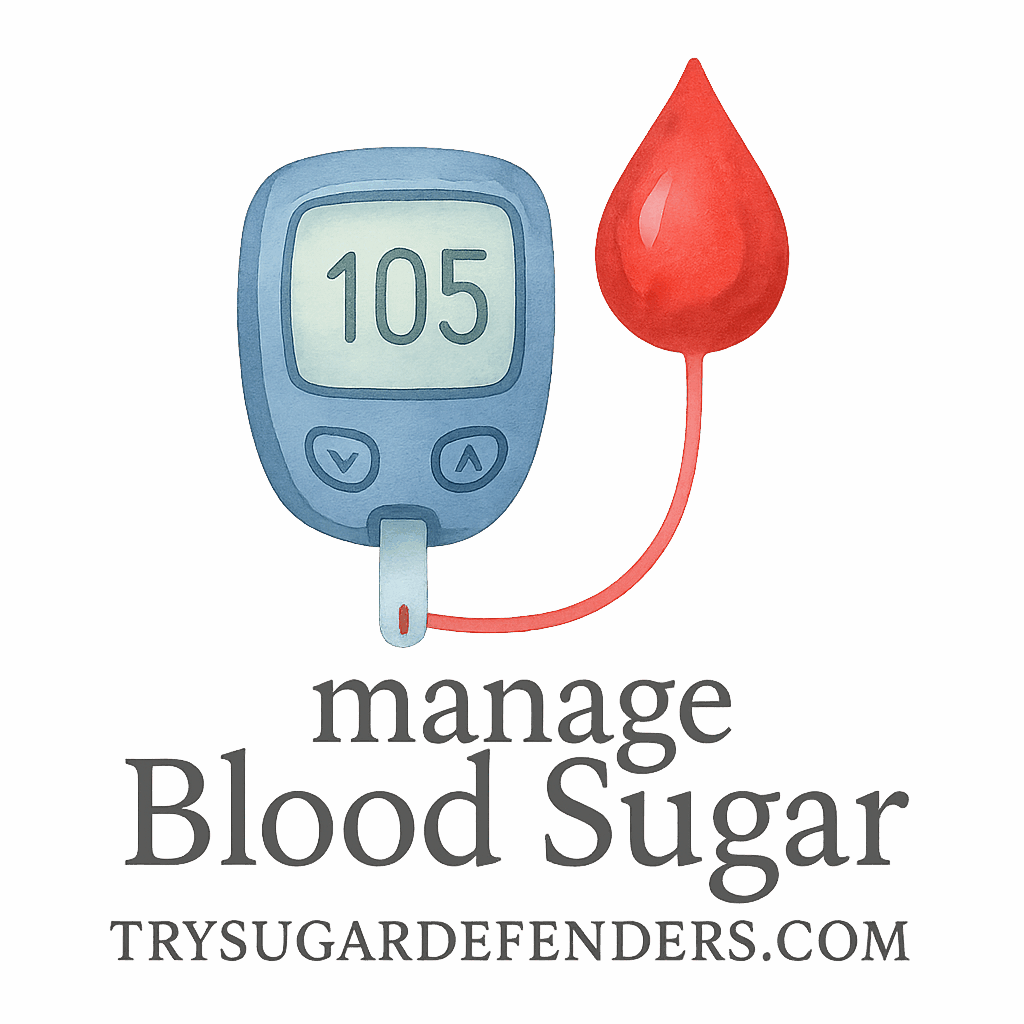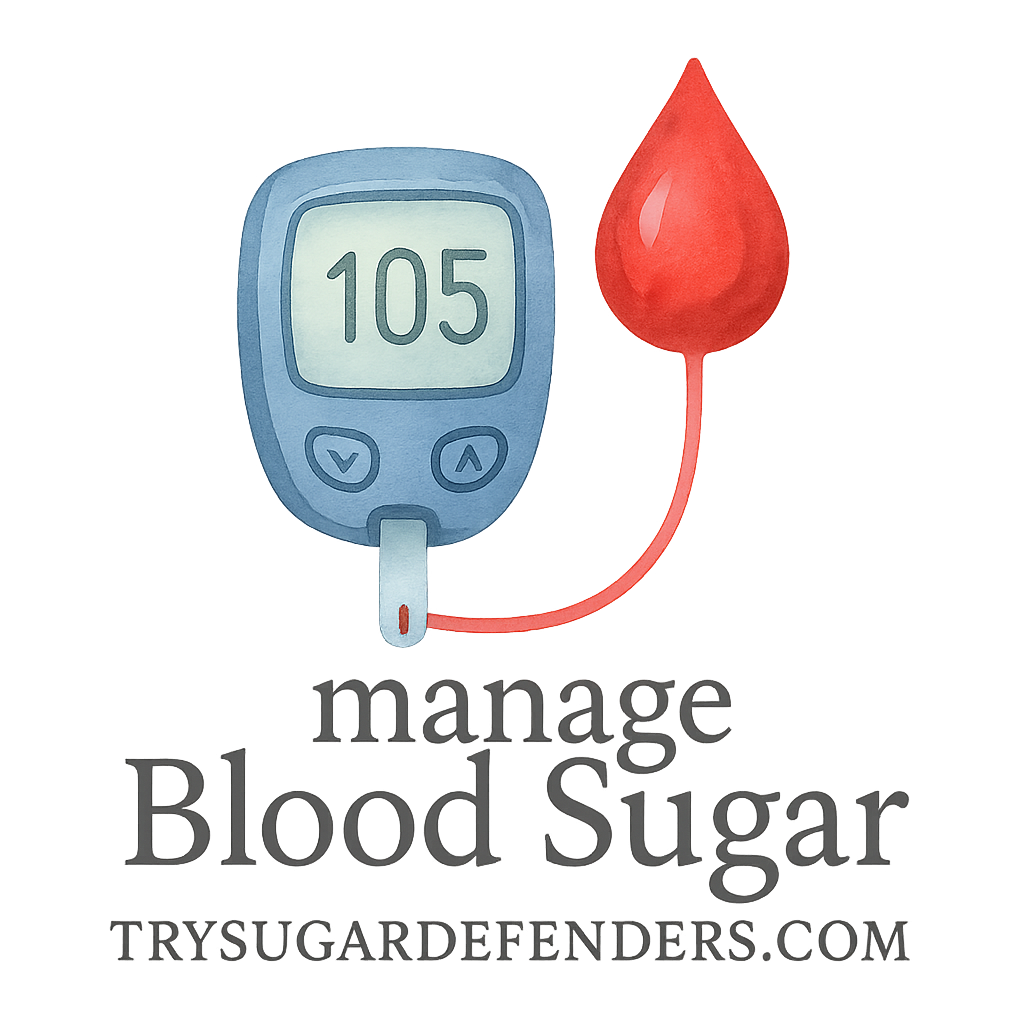Introduction
Let’s get real—navigating carbs can feel like walking through a nutritional minefield, especially when you’re watching your blood sugar. But guess what? Not all carbs are the enemy. In fact, when chosen wisely, smart carbs can become your best ally in maintaining balanced blood sugar. Let’s break it all down and explore the 10 smart carbs to include for blood sugar regulation that can make a real difference in your everyday meals.
👉 Bonus tip: Check out the Diet & Nutrition Guide on Sugar Defenders for more inspiration.
What Are Smart Carbs?
Simple Carbs vs Complex Carbs
Simple carbs are your fast-burning sugars. Think white bread, soda, pastries—yeah, the usual suspects that spike your blood sugar like a roller coaster. On the flip side, complex carbs are slow-digesting, fiber-rich heroes that help you stay full and maintain steady energy.
Why Smart Carbs Matter for Blood Sugar
Smart carbs are essentially complex carbs with benefits—packed with fiber, nutrients, and a low glycemic index. They help keep your insulin response in check, making them ideal for people managing or trying to prevent type 2 diabetes or prediabetes.
Smart Carb #1: Sweet Potatoes
Nutritional Value
Sweet potatoes are loaded with vitamins A, C, and potassium. Plus, they’re rich in fiber when eaten with the skin.
Blood Sugar Benefits
They rank lower on the glycemic index than regular potatoes, which means they raise your blood sugar more gradually. That’s a win! Learn more about diet and blood sugar control.
Smart Carb #2: Quinoa
Packed with Protein and Fiber
This gluten-free grain is a protein-packed powerhouse with all nine essential amino acids.
How It Helps with Blood Sugar
Its combo of fiber and protein slows down digestion, helping to avoid post-meal glucose spikes. It’s featured in many healthy meal plans because of its balance-boosting properties.
Smart Carb #3: Lentils
Rich in Resistant Starch
Lentils are a plant-based protein champ and full of resistant starch that feeds good gut bacteria.
Great for Gut Health and Glucose Control
Their high fiber content helps in slowing sugar absorption, making them perfect for anyone focused on blood sugar management.

Smart Carb #4: Chickpeas
Slow-Digesting Goodness
These little legumes are packed with fiber and protein, which help keep insulin levels in check.
Easy Meal Ideas
Toss them in salads or roast them for a crunchy snack! They’re a staple in many Mediterranean diet recipes that support balanced eating.
Smart Carb #5: Oats (Steel-Cut)
A Morning Blood Sugar Booster
Steel-cut oats are less processed and digest slower than instant versions.
Best Ways to Eat Oats
Top your oats with low-GI fruits like berries and a handful of nuts for a sugar-friendly breakfast.
Smart Carb #6: Barley
A Forgotten Super Grain
Barley is making a comeback—and for good reason. It’s high in soluble fiber, particularly beta-glucan.
Soluble Fiber and Satiety
This type of fiber helps reduce blood sugar spikes and keeps you full longer, supporting your exercise and lifestyle goals.
Smart Carb #7: Apples
Pectin and Polyphenols
Apples are rich in a type of fiber called pectin and loaded with antioxidants.
Why an Apple a Day Helps
They help slow digestion and sugar absorption. Plus, apples support heart health too—double bonus!
Smart Carb #8: Berries
Low on Glycemic Index
Blueberries, strawberries, raspberries—all great choices with low GI and rich in fiber.
Full of Antioxidants
Berries help reduce inflammation and oxidative stress, both of which are linked to insulin resistance. Try adding them to your smart snack routine.
Smart Carb #9: Carrots
Crunchy and Nutrient-Dense
Carrots are low in calories, high in fiber, and provide a steady release of sugar.
Sugar-Controlling Properties
They may taste a little sweet, but they don’t spike blood sugar like you’d expect. Perfect for your health-focused diet.
Smart Carb #10: Brown Rice
A Better Grain Option
Brown rice retains the bran and germ, unlike white rice, making it higher in fiber and nutrients.
Tips to Make It More Blood Sugar Friendly
Pair it with lean protein and veggies. Or try mixing it with quinoa for a comparative advantage.
How to Incorporate Smart Carbs into Your Diet
Build a Balanced Plate
Half your plate should be veggies, a quarter lean protein, and a quarter smart carbs. Easy, right?
Portion Control Tips
Even smart carbs can add up. Stick to serving sizes and use tools like a glucose monitor to track your response.
🔍 Pro Tip: Explore Monitoring & Tracking tools to personalize your smart carb choices.
Final Thoughts
Carbs don’t have to be your enemy—they just have to be chosen wisely. These 10 smart carbs are your nutritional allies in the fight for better blood sugar control. Combine them with regular activity, mindful eating, and tools from Sugar Defenders to truly take charge of your health journey.
FAQs
1. What are smart carbs?
Smart carbs are nutrient-dense, fiber-rich carbohydrates that digest slowly and help regulate blood sugar.
2. Are all fruits considered smart carbs?
Not all. Stick to lower-glycemic options like berries and apples for the best blood sugar benefits.
3. Can smart carbs help with weight loss?
Yes! Because they keep you full longer and reduce cravings, they support healthy weight management.
4. How often should I eat smart carbs?
Include them in every meal, but in balanced portions.
5. Can I eat smart carbs if I have diabetes?
Absolutely. Just monitor your response with tools like those in the Monitoring & Tracking section.
6. What’s the best time to eat smart carbs?
Pair them with meals—especially before or after physical activity to support fitness and exercise routines.
7. Where can I get more guidance on smart carb meal planning?
Check out Behavioral & Mental Strategies and Medical Supplements for additional support.


